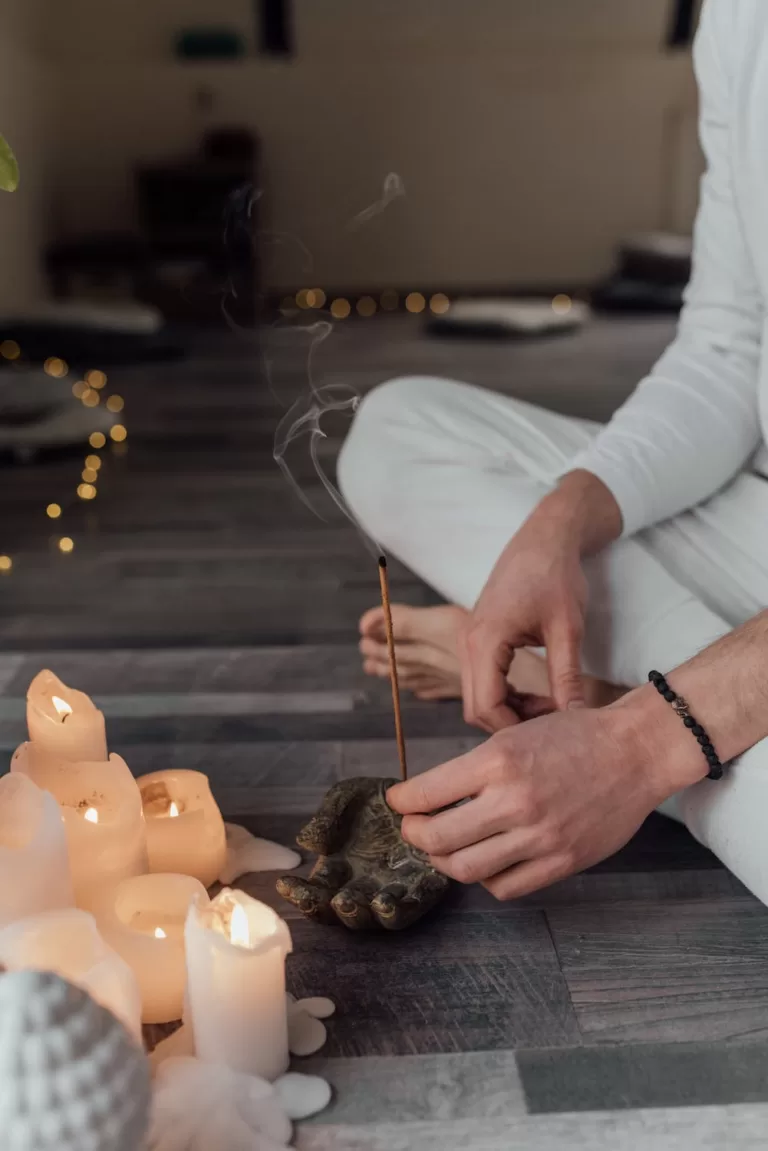How To Be Yourself
How To Be Yourself
Self-discovery is a lifelong journey of peeling back the layers we’ve accumulated and revealing our authentic core. It requires vulnerability, patience, and perseverance. But staying true to who you are at heart brings meaning, purpose, and joy that transcends all worldly measures of success.
Reconnecting with your authentic self is well worth the effort. Here are some practical steps:
 Look Within
Look Within
Spend time in silent reflection. Notice thoughts, emotions, and desires rising unjudged within you. Put away your devices and simply sit with yourself. Ask deep questions: “What truly energizes me? What do I value most? Who do I wish to be in the world?”
Your answers may not come immediately. Keep returning to this inner dialogue. With practice, you’ll tune into subtle whispers of truth that guide you forward. Pay attention to recurring themes in your reflections – common desires, activities that bring you joy, people who make you feel seen. These reveal clues to your authentic self waiting to be uncovered.
 Love Your “Flaws”
Love Your “Flaws”
Our perceived flaws and weaknesses often reveal our most authentic selves. Let go of the need to be perfect and accept all parts of you – the light, the dark, and the in between. Remember that what society deems a flaw may actually be an expression of your uniqueness.
Look for the gifts within qualities you’ve judged as imperfect. Your sensitivity may allow you to feel others’ joy and suffering deeply. An analytic mind can help you discern truth. Juggling multiple interests could suggest a love of variety and zest for life.
When you meet “flaws” with self-compassion instead of harsh judgment, you open the pathway to self-discovery. Self-acceptance is the first step to embracing your authentic nature, flaws and all.
 Trust Your Intuition
Trust Your Intuition
Your inner voice has wisdom beyond what you consciously know. With practice, you can learn to heed that still, small voice within – your intuition – guiding you toward actions that align with who you truly are.
Start by paying close attention to your ”gut feelings” during decision-making. Notice physical sensations like tightness in your chest or butterflies in your stomach that point toward or against a particular choice. Even if your logical mind argues the other side, honour what your intuition is communicating. Over time, you’ll gain confidence in its guidance.
Intuition also speaks through flashes of insight, aha moments, and solutions that arise spontaneously. Write down your intuitive hits and trace their accuracy over time. Keeping an intuition journal can strengthen your intuition muscle.
When in doubt, follow your heart. It never lies. Your intuition evolved to help you navigate the complexities of being human from a place of wisdom and truth. The more you practice listening inward, the clearer its voice will become – leading you ever homeward to your authentic self.
 Set Healthy Boundaries
Set Healthy Boundaries
To stay true to yourself, you must protect your energy. Saying “no” when needed and establishing limits that honor what nourishes you are acts of self-love. But setting boundaries requires asserting your authentic needs – which can be difficult if you’re used to people-pleasing.
Start small. Practice saying “no” to insignificant requests that don’t serve you. Notice how it feels to prioritize your needs, even in minor ways. With practice, asserting boundaries will become easier.
When setting boundaries, speak from the heart. Use “I” statements like “I feel overwhelmed” rather than accusatory “you” statements. Stay firm yet kind. Remember those pushing against your boundaries are coming from their own place of pain or lack.
Though boundaries may invite conflict initially, they allow your authentic self to flourish over time. Stand your ground lovingly but firmly. Your boundaries are not a sign of weakness, but an expression of the strength and self-respect found within your true self.
 There is no one like you
There is no one like you
Each individual is a unique blend of experiences, talents, and perspectives, making them unlike anyone else. Embracing your individuality and being true to who you are is a powerful affirmation of self-worth and authenticity.
In a society that often pressures us to conform to certain standards and expectations, it takes courage to break free from the mold and embrace our uniqueness. Remember, the qualities that set you apart are what make you special and valuable. Your passions, talents, and quirks are the building blocks of your identity.
When you embrace your true self, you radiate a genuine aura that attracts others who appreciate and resonate with your authenticity. By being true to yourself, you inspire others to do the same, fostering a culture of acceptance and celebration of diversity.
Don’t be afraid to follow your own path and pursue your dreams, even if they deviate from the norm. Trust your instincts and believe in your abilities. Remember that comparison is the thief of joy, and it is far more fulfilling to live a life that is authentic and true to your own values rather than trying to fit into someone else’s mold.
So, embrace your individuality, honor your passions, and never apologize for being yourself. There is no one like you, and that is a beautiful thing. Be who you are, unapologetically, and let your uniqueness shine brightly in this world.

Speak up for Yourself
Speaking up for yourself can be difficult, especially in uncomfortable situations. However, it is important to assert yourself to keep your dignity, self-respect, and integrity. Being able to stand up for your needs is crucial in life.
First, be clear what you will and won’t accept. Knowing your boundaries makes communicating them easier. It’s okay to say “no” and have limits that matter to you.
When speaking up, use “I” statements instead of “you” statements. This avoids sounding accusatory. Say “I feel frustrated when interrupted,” not “You always interrupt me.”
Also, be specific when expressing your needs. Vague claims can confuse others. Instead of “I need more help,” say “I’d appreciate help with this specific task.”
Stay calm and composed. Emotions can distract from your message and make you hard to hear. Take deep breaths before speaking and keep a neutral tone.
Be assertive without aggression. Assertiveness means sharing your views clearly while respecting others. Aggression tries to dominate or intimidate. Assertiveness is more respectful and effective.
In sum, speaking up for yourself builds confidence, keeps boundaries, and improves communication. When you do, be clear, specific, calm, and assertive in sharing your needs. With practice, you’ll grow more comfortable standing up for yourself and advocating what’s important.
Reconnecting with your authentic self is a dynamic process of self-discovery that unfolds over a lifetime. While the journey brings joy and meaning, it also demands courage, perseverance, and patience with ourselves.
 Conclusion
Conclusion
Remember, you are right where you need to be. Each moment is an opportunity to learn, grow, and reclaim a little more of your truth. Trust that you have the inner resources to walk this path of self-discovery – even when directions are unclear.
Your authentic self lies in wait, like a seed longing to blossom. Let yourself unfold, one brave act of self-discovery at a time: one difficult conversation, one boundary asserted, one passion pursued. The rewards – connection, contentment, and peace of being truly yourself – will far outweigh any growing pains along the way.
Stay present. Follow your intuition. Practice self-compassion. Keep walking the path that leads you home to yourself. You are enough. You have everything you need within. Your unique gift to the world is being fully who you came here to be.
So stay true. Remember your essence. Remind yourself often: “I am enough. I am Love. I am Home.” With this deep knowing in your heart, step forward into each moment fully alive, fully awake, fully yourself.
You have arrived. So, go on and be who you really are.






